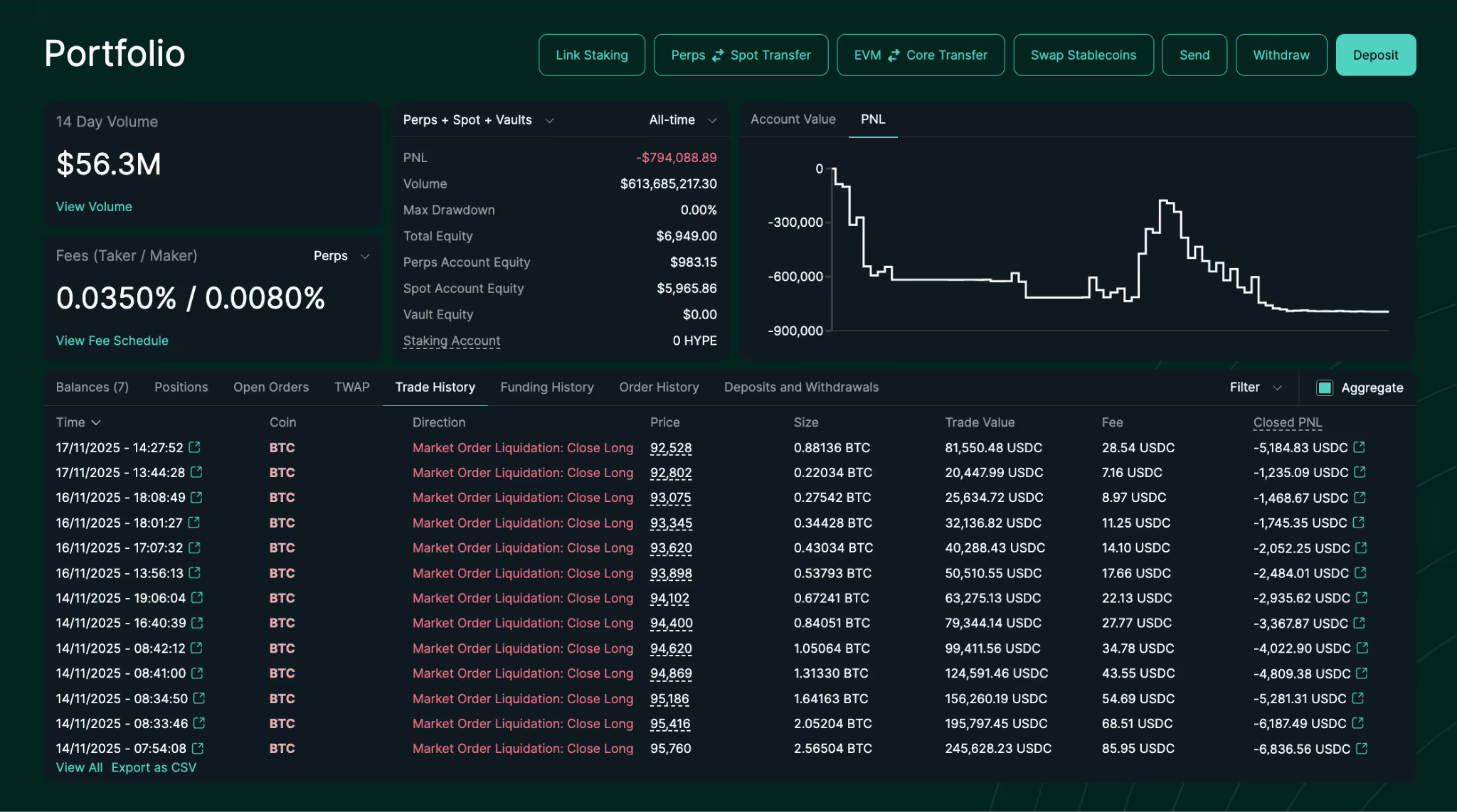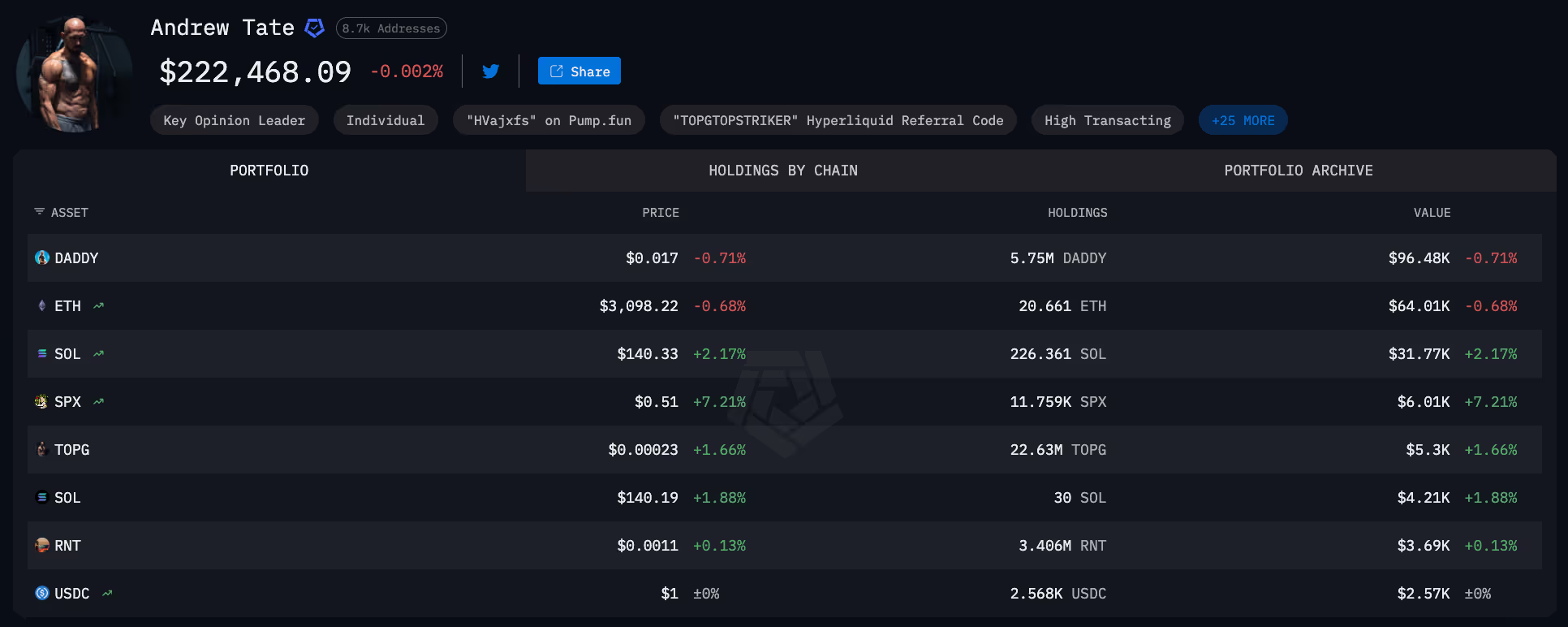November 18, 2025
at
7:15 pm
EST
MIN READ
Andrew Tate Has Just Been Fully Liquidated on HyperLiquid
.avif)
Andrew Tate – the controversial British-American influencer – has just had his entire Hyperliquid account liquidated. Records indicate that Tate deposited a substantial total of $727,000 to his account. Crucially, Hyperliquid data confirms that he never executed a single withdrawal, resulting in the loss of all deposited funds.
Furthermore, Tate generated an additional $75,000 in referral rewards from traders utilizing his referral link, all of which were subsequently lost through trading activity. Financial summaries show the account eventually reached a negative PNL of -$794,093.72.

The accompanying trade history data shows the full details of the liquidation, revealing a highly active and volatile period of perpetuals trading. Tate engaged in frequent trades across major cryptocurrencies, including:
- Bitcoin (BTC)
- Ethereum (ETH)
- Solana (SOL)
- Chainlink (LINK)
- HYPE
- Various meme coins (e.g., LICK, PENGU, YZY)
The trade history reveals a pattern of major liquidation events spanning nearly a year. Multiple simultaneous liquidations were recorded on December 19, 2024, closing long positions in BTC, ETH, SOL, LINK, HYPE, and PENGU.
Further large losses followed in 2025, with multiple BTC and ETH positions being forcibly closed by Market Order Liquidation. For example, liquidations for long BTC positions resulted in significant closed PNL losses, including figures like -$87,489.28 and -$69,064.87 in early 2025.

Trading activity continued until November 2025, showing multiple BTC long positions being liquidated in the $90,000 price range, signaling the final depletion of capital. The complete loss of the $727K in deposits, along with the referral earnings, underscores the high-risk nature of the leveraged positions taken on the platform.
Many people will see the irony in Tate’s Hyperliquid liquidation. The influencer sells courses on financial mastery and trading discipline to millions of young men, but has now been publicly liquidated on one of the most popular decentralized exchanges in the world.
While a $794,000 loss may be absorbable for Tate, the on-chain evidence of his degenerate trading behavior stands in stark contrast to the calculated persona he projects to his subscribers.
Read our guides to Spot Trading and Perpetuals Trading here so you don’t end up getting liquidated too.













































































































































































































































































































.png)